Mark Abley’s The Tongues of Earth is a rich sampling of his three earlier books with some new poems. Abley is best known for his excellent non-fiction, but he also understands the craft of poetry, particularly the use of traditional forms. Most of his poems are written in stanzas, usually rhymed ones. He writes on many subjects, but his imagination is most engaged with extinctions, both biological (like the Imperial Woodpecker, the Labrador Duck, and the Garefowl) and linguistic. The concern with loss means that his tone is often elegiac, although he has written with wincing humour about the experience of a vasectomy: “The wisecrack surgeon sends me home in stitches. / Codeine is dynamite with Scotch and nachos.”
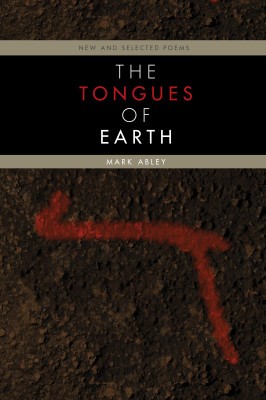
The Tongues of Earth
New and Selected Poems
Mark Abley
Coteau Books
$16.95
paper
128pp
9781550506105
He glimpsed the radiance of Heaven but the deprivations of earthly life destroyed his vision. Abley’s work has substance, and the substance has form. This is a book to read, and read again.
Oana Avasilichioaei’s Limbinal is two books in one, with a portfolio of colour photographs in the middle. The Romanian-born Montreal poet has an instinctive interest in boundaries. A limb is articulated with other parts of the body, making it a liminal site, and an exile or migrant is a dislocated limb. The first half of Limbinal is in five sections and explores boundaries and limits, dramatizing crossing, violations, and seepages. It is heavily theorized and works brilliantly with formatting and fonts, but remains curiously detached, even in the love poems. The photographs that both join and divide the book illustrate the concepts more powerfully than the poems of the first part.
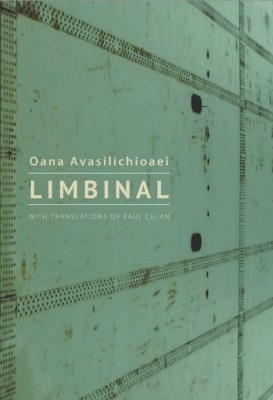
Limbinal
Oana Avasilichioaei
Talonbooks
$19.95
paper
136pp
9780889229242
Erín Moure deploys her impressive literary powers to muffle the impact of the two stories she has to tell in her bilingual Kapusta, a new form she calls a “verse play / cabaret.” She uses her now-familiar avatar E. as a narrator in both French and English, but she also introduces a sock puppet called Malenka Dotchka as a kind of stand-in for the stand-in.
One story is ancestral: the work is narrated by E. from behind the woodstove of her maternal grandmother, who was born near Lviv (then part of Austria, and now part of Ukraine) but ended up in the outskirts of a town in northern Alberta. The word kapusta means cabbage, and what could be more authentically Eastern European than cabbage? The stage directions say that the set should have a field of red cabbages on a tarpaulin. (“Only the cabbages are real,” we are told.) The grandmother and her family left for Canada before the two genocides in Ukraine, the Soviet-imposed famine, and the massacres by the Nazis, but they were aware of them.
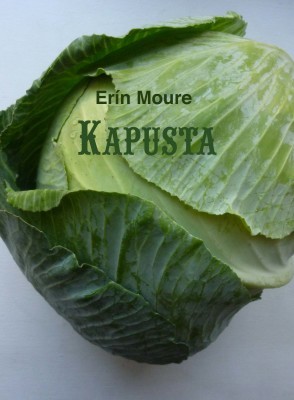
Kapusta
Erín Moure
House of Anansi Press
$19.95
paper
128pp
9781770894815
Near the end, E. “writes over” Adam Zagajewski’s poem “To Go to Lvov” (an alternative name for Lviv) by substituting lines of Holocaust testimony from the Internet while keeping every tenth line of the original. Zagajewski’s poem is one of the great works of our age. Erín Moure’s poem does not measure up, but whose would?
Melissa Bull is well known as a translator, particularly of Nelly Arcan, and as a columnist for Maisonneuve. Her strong debut as a poet plays off multiple meanings of rue, the most famous of which in English literature is the mad Ophelia’s “You must wear your rue with difference,” and Ophelia’s “rosemary for remembrance” is quoted in one poem. While Bull writes about the Montreal streets, cafés, and apartments in the middle section, “Skirting Petite-Patrie,” she remembers her past with considerable regret in the opening and concluding sections. In fact, much of the book explores memory, which, Socrates said, is the mother of the Muses.
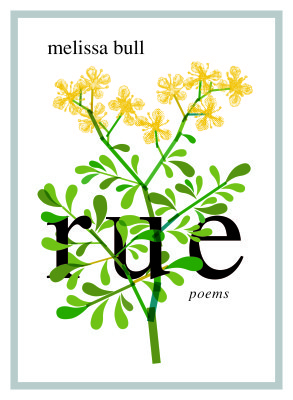
Rue
Melissa Bull
Anvil Press
$18.00
paper
104pp
978-1-77214-016-3
Where she triumphs is in the poems sandwiched between the mother and father sections. Montreal place names proliferate, and she makes the sites real through sharp images. One of the best poems, “Scaffolding,” catches the distinctive flavour of the Québécois accent on the East Plateau by quoting bits of conversation. She uses imagery of the body to suggest a real subject moving through the streets and “the patchouli hub of the café” of her city. The synaesthesia in the opening of “Radii” is dazzling: “I could lick the hair of his arms to / smell the sunlight.” Like Moure, Bull interjects parts of a celebrated poem as an inter text in a work of her own. Her poem “BATTERMEDOWN!” cannot bear the weight of John Donne’s great sonnet, “Batter My Heart, Three-person’d God.”
Talya Rubin writes about two places called St. Kilda: the austere island in the Hebrides, abandoned by its people in 1930, and the raffish seaside suburb in Melbourne, which was named for Sir Thomas Acland’s schooner, Lady of St. Kilda, after it moored there for a year.
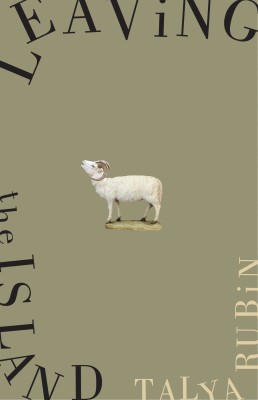
Leaving the Island
Talya Rubin
Signal Editions
$18.00
paper
70pp
978-1550654035






0 Comments